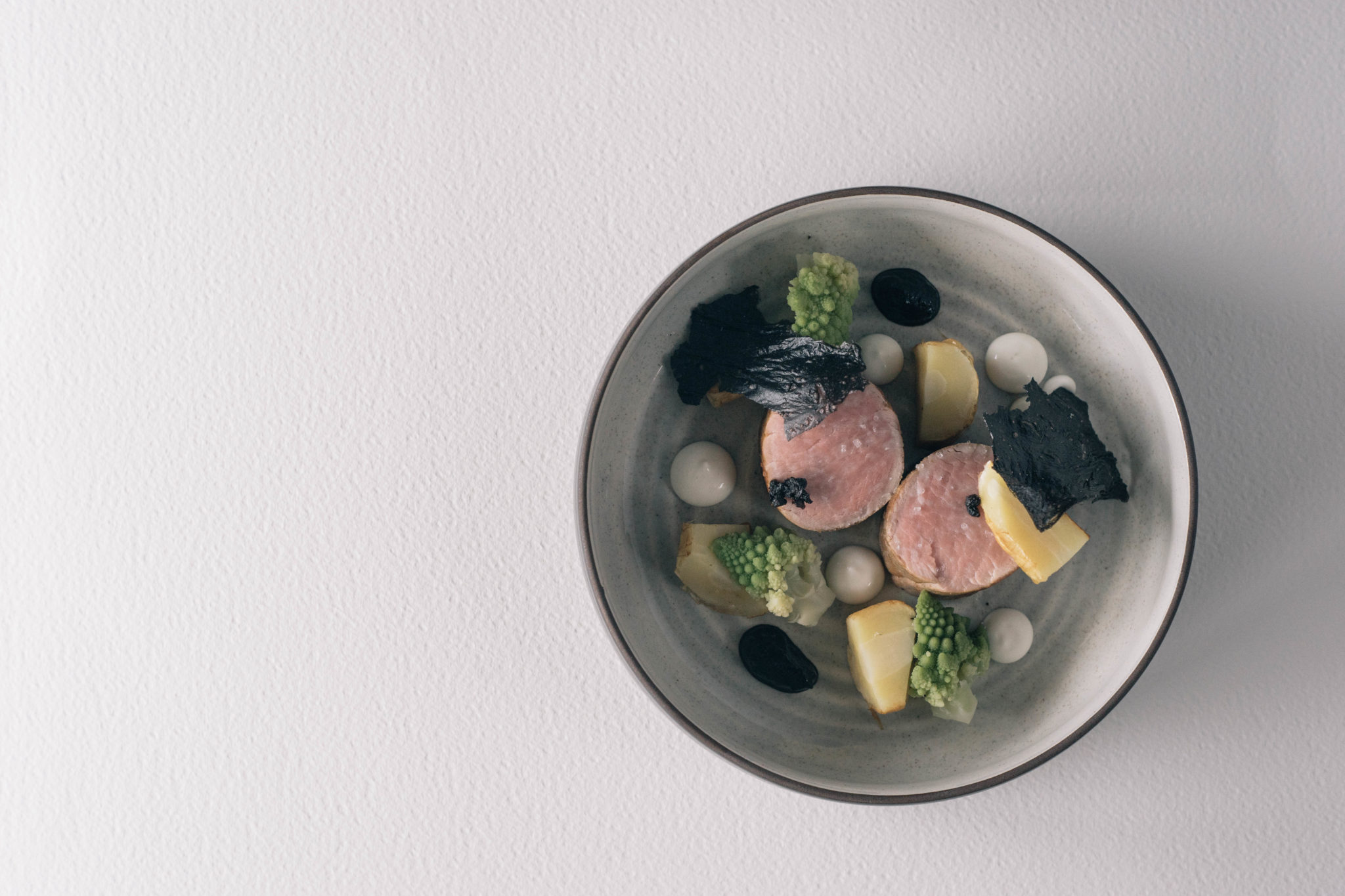Black garlic has been praised for its complex layers of flavor composition: hints of caramel, balsamic, and subtle bitterness laced with a decadent umami sensation on the palate.
The origins of black garlic have been shrouded in mystery for millennia, with countries like Korea, Japan, China, and even Italy claiming its birthplace. Contrary to popular belief, black garlic is not fermented and has no ties to any bacterial preservation. The process is connected to the simple Maillard reaction, a chemical reaction that breaks down natural enzymes and caramelizes sugars so that the strong odor and flavor of raw garlic turn aromatic and sweet.
The process to make black garlic is simple: Keep the whole garlic bulbs at a constant temperature for 40 plus days in a humidity-controlled vessel. The percentage of humidity is crucial in achieving the complex flavors. Transfer the bulbs from the humidity-controlled vessel to a dry room to mature, develop flavors, and ripen to their signature black color.
Contrary to popular belief, black garlic is not fermented and has no ties to any bacterial preservation. The process is connected to the simple Maillard reaction, a chemical reaction that breaks down natural enzymes and caramelizes sugars so that the strong odor and flavor of raw garlic turn aromatic and sweet.
Black garlic’s rise in popularity has placed it in the category of superfoods, and recent studies conducted on its health benefits have proven to be positive. Black garlic contains twice the amount of antioxidants compared with fresh garlic, and studies have shown that it may help reduce the size of some tumors.
The versatile ingredient pairs well with many of the world’s cuisines. Replacing raw garlic with black garlic in an aioli imparts a sophisticated aged flavor to the classic emulsion. Finishing a carbonara with a few cloves of black garlic adds intrigue to a somewhat simple dish. Use black garlic with sesame oil, ginger, and soy sauce as a foundation for an amazing Asian marinade for pork, chicken or beef.
Berkshire pork loin with black garlic, parsnips, and romanesco
Serves 4
Prep time: 2 hours (for the pork)
Cooking time: 30 minutes
Ingredients
For the pork
800 grams Berkshire pork tenderloin
2 tbsp butter
3 tbsp extra virgin olive oil
sea salt, to season
black pepper, to season
For the black garlic
1 head black garlic
45 ml olive oil
salt, to season
Parsnips
2 sticks fresh parsnips
1 tbsp brown sugar
1 tsp salt
Lactonaise
100 ml milk
300 ml grape seed oil
2 tbsp caraway seeds
Romanesco broccoli
1 head Romanesco
salt, to season
2 tbsp butter
3 springs fresh thyme
Procedure
- Season each pork tenderloin with salt and pepper. Transfer the seasoned tenderloin to a vacuum bag, add butter and olive oil, and cook in an immersion circulator for an hour at 63°C. If you do not have an immersion circulator, a simple pan sear and finish in the oven will do.
- To make the black garlic emulsion, peel the skin of the black garlic and transfer to a shallow bowl. Using a hand blender, blend the garlic while pouring olive oil. Season well with salt.
- Mix salt and brown sugar and sprinkle over the parsnips. Place in an ovenware dish and cover with foil. Bake at 160°C for 30 to 45 minutes or until tender.
- Bring a pot of seasoned water to boil and cook the Romanesco until tender. Transfer to ice water to halt the cooking. Finish in a sauté pan with butter and thyme.
- To make the lactonaise, put all of the ingredients in a measuring cup and blend using a stick blender.
- To finish, sear the pork tenderloins in a hot pan until golden brown on the outside. Rest for 10 minutes and slice. Arrange slices in the center of the plate. Add the baked parsnips and Romanesco. Using a piping bag or squeeze bottle, pipe the black garlic emulsion and lactonaise unevenly around the dish. Garnish with fresh herbs and a few cloves of black garlic.
Originally published in F&B Report Vol. 13 No. 2






